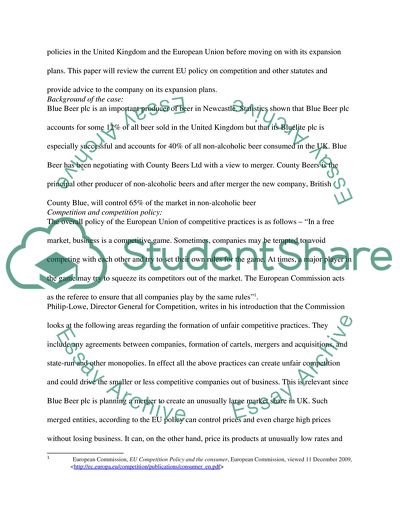Cite this document
(“Competition and Competition Policy Essay Example | Topics and Well Written Essays - 4500 words”, n.d.)
Competition and Competition Policy Essay Example | Topics and Well Written Essays - 4500 words. Retrieved from https://studentshare.org/social-science/1560959-competition-and-competition-policy
Competition and Competition Policy Essay Example | Topics and Well Written Essays - 4500 words. Retrieved from https://studentshare.org/social-science/1560959-competition-and-competition-policy
(Competition and Competition Policy Essay Example | Topics and Well Written Essays - 4500 Words)
Competition and Competition Policy Essay Example | Topics and Well Written Essays - 4500 Words. https://studentshare.org/social-science/1560959-competition-and-competition-policy.
Competition and Competition Policy Essay Example | Topics and Well Written Essays - 4500 Words. https://studentshare.org/social-science/1560959-competition-and-competition-policy.
“Competition and Competition Policy Essay Example | Topics and Well Written Essays - 4500 Words”, n.d. https://studentshare.org/social-science/1560959-competition-and-competition-policy.


